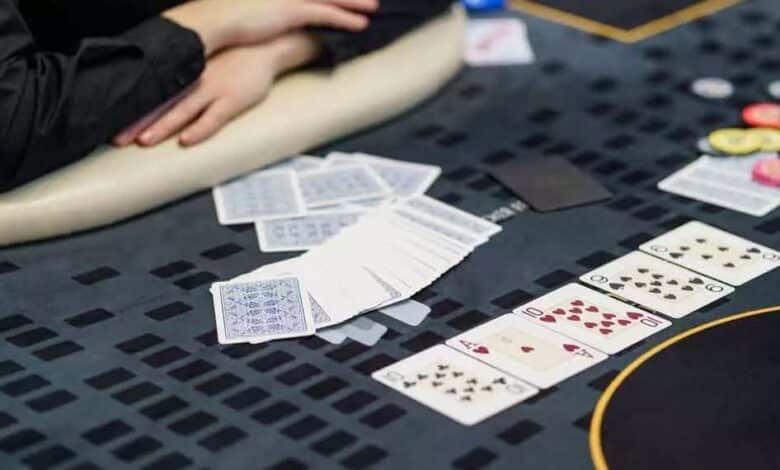The Poker Boom in India: From Recreational Play to Competitive Sport

India has a population of 1.4 billion people across a subcontinental landmass. The chances are that some of the people there are going to enjoy online cash poker games. Let’s trace the rise of poker in the country from a recreational pastime to its contemporary status in the country. Furthermore, there’s an overview of hazy legislation which oversees all gambling activities in the country.
Early Indian Card Games
It is believed that India was first introduced to playing card games back in the 16th century when explorers from central Asia brought the pastime to the Indian people. Since then new games arrived like Ganjifa, Andar Bahar and Kachufool. All of which use the conventional 52-card deck, leading to their eventual introduction to poker. There is even a game called Indian Poker, however, this game has little to do with the online cash poker games we see in the modern era.
Legislation in contemporary India
Calling the legislation of online cash poker games and gambling as a whole in India unclear is an understatement. It’s vague, unhelpful, and rather ambiguous. After all the national guidance on the subject matter dates back to 1867, before the country had gained independence.
Local state governments tend to override national regulations with their own ideologies. Add in that the majority of laws don’t address poker or online poker specifically, the majority of localities permit the practice with no ill-fated jurisdiction falling on companies or bettors.
There are however a few select areas like Tamil Nadu, Telangana, and Andhra Pradesh that have outlawed all forms of gambling.
The popularity of Poker and Gambling in Contemporary India
Despite the legislative opposition and vagueness of poker, the pastime has long been enjoyed in India without social castration. Before the 1990s it’s been reported that numerous poker rings were formed in the bigger cities where ‘underground gambling’ activity took place chiefly poker games.
These markets directly fed the online markets and demand for poker as players would have less chance of being caught and could play the game from the comfort of their own homes instead of congregating with other people in somewhat nefarious settings or venues.
In 2022 it was reported that there were 430 million smartphone users in India, more than the total population of some countries!
Indian Poker Tournaments, Tours, and Competitions
While the most globally recognized poker organizations might be the World Series of Poker and the European Poker Tour, the same can’t be said in India. The country has many of its own tours and operations which have operated there for much longer. To name but a few: India Poker Championship, Baazi Poker Tour, and Deltin Poker Tournament are all eagerly followed by local poker fans.
The very best players have gone through these ranks and taken the global game by storm. Vivek Rajkumar (sometimes known as FLOG) has reportedly earned over USD 8m from his illustrious poker career, making him comfortably the biggest Indian poker player in terms of earnings. Rajkumar may have spent his childhood in India (as well as some of it in Singapore) but now calls Seattle home, having moved to the US back in 2006 to complete a college program.
Santhosh Suvarna while only having amassed just over 3m USD from his career, enjoys what some would consider a bigger connection with Indian online cash poker games. That’s because he still lives in Bangalore and competes in Poker tournaments all across India as well as jetting off to others around the world. By comparison, Rajkumar only started playing poker when he moved to the US so doesn’t have as much synergy with the Indian poker population.
Is Poker Skill or Luck?
When considering the game of poker, it’s relatively hard to shoehorn it into a defined skill or luck game as neither attribute exclusively spells success for a player. After all, the cards you get and can play with are random and a certain amount of luck goes into you getting a winning hand. However, strategy lovers will debate that no matter what hand you have you can still win a hand with the correct gameplan, it’s not the cards you have moreover how you play with them. While there’s no overarching consensus most players and poker fans would agree that poker players need a strategy to win, whereas a player with luck and no strategy could still easily lose.
Referring back to the national government legislation on gambling, luck and skill games are taxed differently. Where poker sat in the national definition was debated in the Supreme High Court in India, with the conclusion being that poker would be defined as a skill-based game and benefit from a slightly better tax rate.
To help their case and convince potential customers to play, online poker companies have often marketed their product as a skill. Adda52 one of the Indian online poker sites started its ‘Khel Jaao’ marketing campaign in which it tried to invite ‘all Indians to play poker’. It used daily Indian lifestyle activities and explained how everyone can use their pre-existing skill set to play poker. Clever marketing some might say! Other companies have also followed the same path by pairing with popular sports stars. By their very definition, sports stars are skilled athletes so this synergy helps to connect poker to the same level of appreciation.




